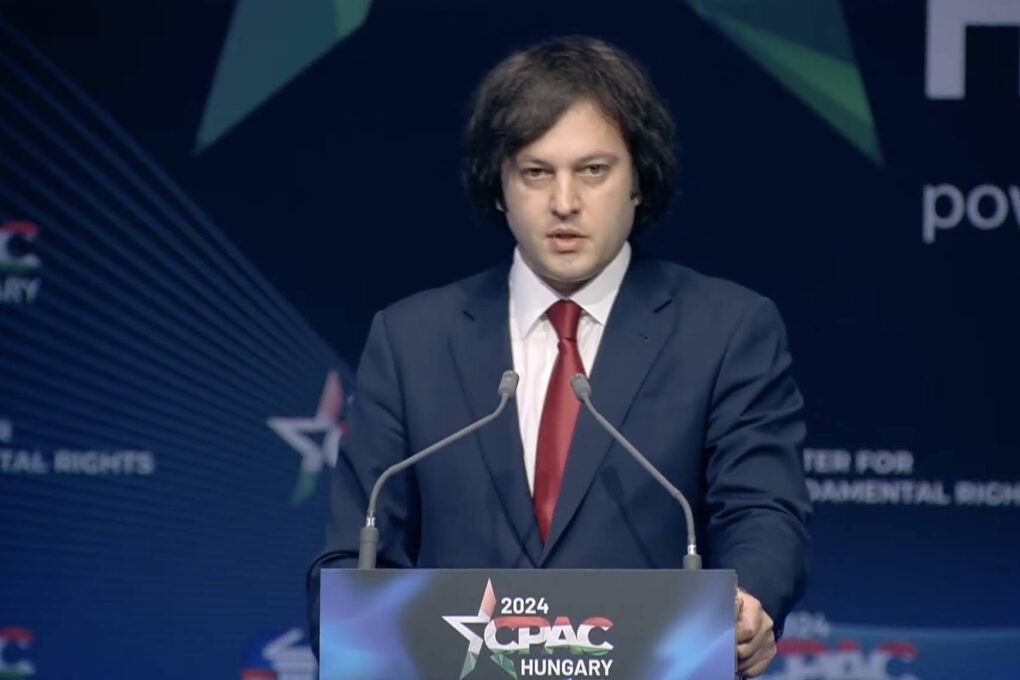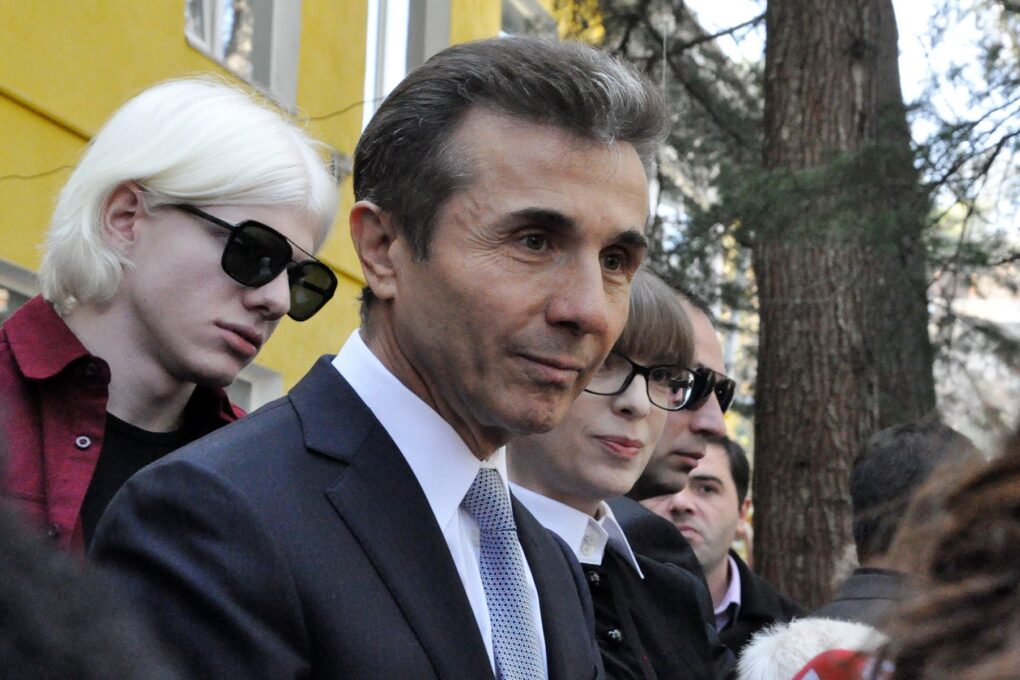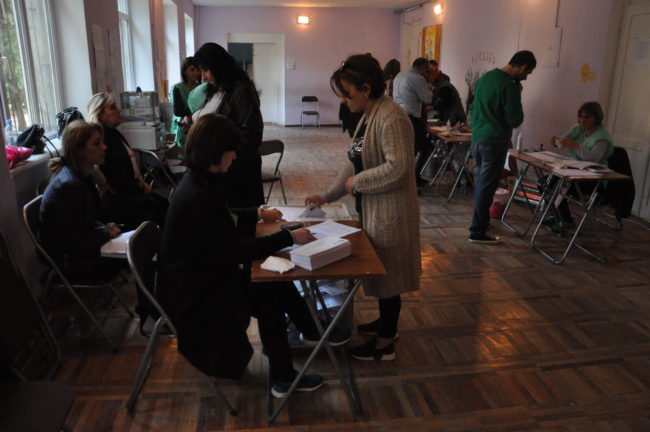
 Kakha Kaladze has been elected Mayor of Tbilisi in Georgia’s local elections. The ruling Georgian Dream party won polls throughout the country, coming first in all 64 cities and municipalities electing mayors.
Kakha Kaladze has been elected Mayor of Tbilisi in Georgia’s local elections. The ruling Georgian Dream party won polls throughout the country, coming first in all 64 cities and municipalities electing mayors.
Local and international observers say that voting went ahead without serious incident, although a number of cases of party activists using voter lists at polling stations to mobilise supporters were reported.
Independent runner up
Kaladze, a former football player for AC Milan who resigned from his post as Energy Minister to run, won the majority of votes on 21 October. He will shortly replace Davit Narmania as Tbilisi Mayor.
According to the Central Election Commission, Kaladze gained 51.1% of the vote. Turnout was around 43% in Tbilisi, meaning just over 200,000 voted for him.
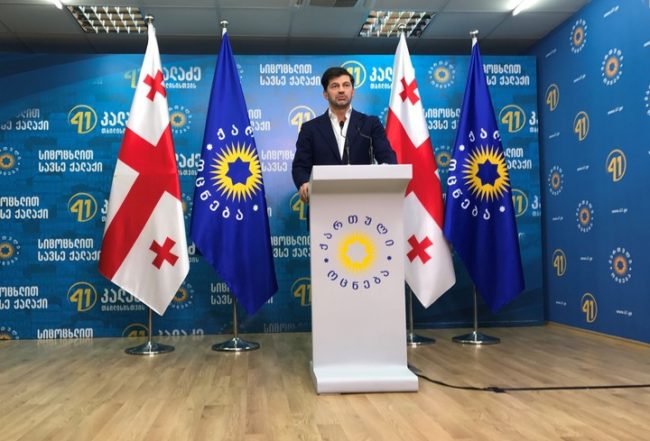
Aleko Elisashvili, a long-standing anti-establishment activist and urban policy specialist who stepped in as an independent candidate in August, came in second place, with 17.5% of votes.
Elisashvili outstriped Zaal Udumashvili, a former anchor on popular opposition-leaning TV channel Rustavi 2, who ran for the for the United National Movement (UNM). Udumashvili won 16.5% of the vote.
European Georgia’s Elene Khoshtaria came in fourth with 7.1%. European Georgia was formed in January 2017 by a number of ex UNM members who left over disagreement on a number of issues, including the role of former Georgian president, Mikheil Saakashvili in the party.
Irma Inashvili from the far-right Alliance of Patriots came fifth with 3%.
Kaladze and Georgian Dream began celebrations soon after polls closed at 20:00, after an exit poll from Rustavi 2 suggested Kaladze had won with 54% of the vote.
Prime Minister Giorgi Kvirikashvili congratulated Kaladze on his victory saying, ‘our capital, the most beautiful city in the world, is waiting for a much more beautiful tomorrow’.
Kaladze said he was ‘ready to cooperate with his opponents’, adding ‘we were opponents, but we were not enemies’.
Elisashvili said on 22 October ‘we have to be able to acknowledge the results honourably’, claiming he wants to ‘establish a new political culture’. However, he underlined the ‘inequality of the pre-election campaign’.
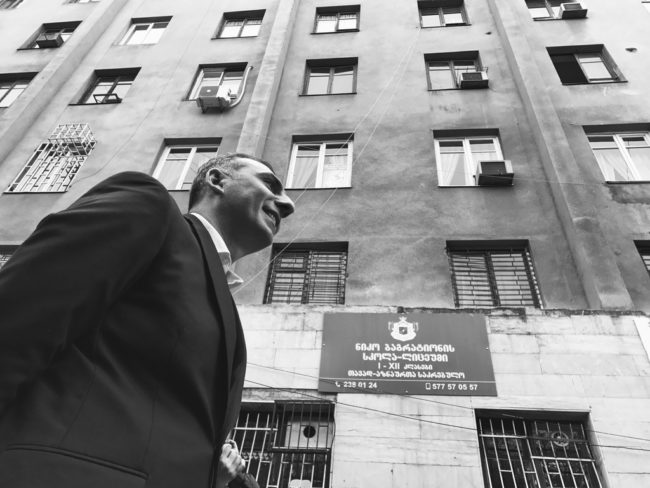
‘Nobody would be faster than me to congratulate the winner, if the victory was honourable’, UNM’s Udumashvili said, claiming that there was ‘an unprecedented pressure on the electorate’.
Who forms Tbilisi City Council?
Preliminary results show that four political parties will form Tbilisi City Council, with Georgian Dream leading with 82% of seats. Council elections are held under a mixed proportional and majoritarian system. The threshold for parties to win seats in the proportional lists was 4%.
Georgian Dream received 53%, UNM 17.7%, European Georgia 9%, and the Alliance of Patriots 5.6% of votes. Georgian Dream won majoritarian contests in all 25 constituencies in Tbilisi.
The ruling party will have 41 seats on Tbilisi City Council, UNM eight, two from European Georgia and one from the Alliance of Patriots.
Regional results
Average turnout nationwide was 45.7%.
Georgian Dream won mayoral races in 58 out of 64 cities and municipalities outright.
Runoffs will be held in five municipalities — Kazbegi, Khashuri, Borjomi, Ozurgeti, and Martvili — and the city of Kutaisi, after candidates for Georgian Dream failed to garner more than 50% of votes.
OSCE: ‘fundamental freedoms respected […] in context of ruling party’s dominance’
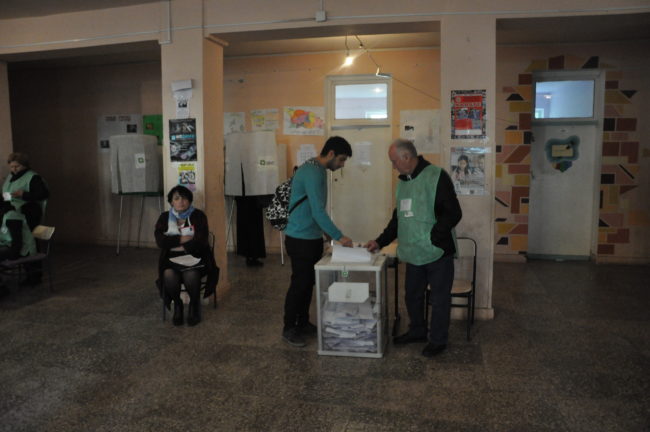
According to the OSCE election observation mission, fundamental freedoms were ‘generally respected’ during the elections, but the observers underlined that ‘the entire context of the elections was shaped by the dominance of the ruling party’.
[Read on OC Media: Tbilisi kindergarten heads ‘instructed to support Kaladze for mayor’]
They pointed to the ‘significant differences in the level of donations to campaigns’, with the ruling party receiving more than 90% of private contributions. From 1 July to 15 October, political donations of almost ₾13 million ($5.2 million) were made. The vast majority of these were made to Georgian Dream.
[For details, read on OC Media: Georgia’s local elections explained]
Anti-corruption group Transparency International — Georgia said their observers reported up to 160 violations. Nearly two thirds of registered complaints related to data on voter lists at polling stations being recorded.
They filed 114 complaints to the Central Election Committee, 106 of which related to ‘illegal recording of voter data’.
Monitors from the Washington-based National Democratic Institute (NDI) also reported witnessing party representatives standing behind registrars and recording data on people who had voted at numerous polling stations.
Although the practice is legal, NDI observers reported voters, domestic observers, and electoral contestants protesting and calling for election officials to eliminate the practice, due to the potential for voter intimidation or influence.
In a statement on 23 October, Georgian Justice Minister Tea Tsulukiani said the practice ‘should be corrected both in practice and in legislation’.
In a 22 October statement, the US Embassy to Georgia pointed to the OSCE report urging the government to ‘quickly and transparently investigate all electoral complaints’, including reports of ‘intimidation of voters and misuse of administrative resources’.




 23 October 2017
23 October 2017
